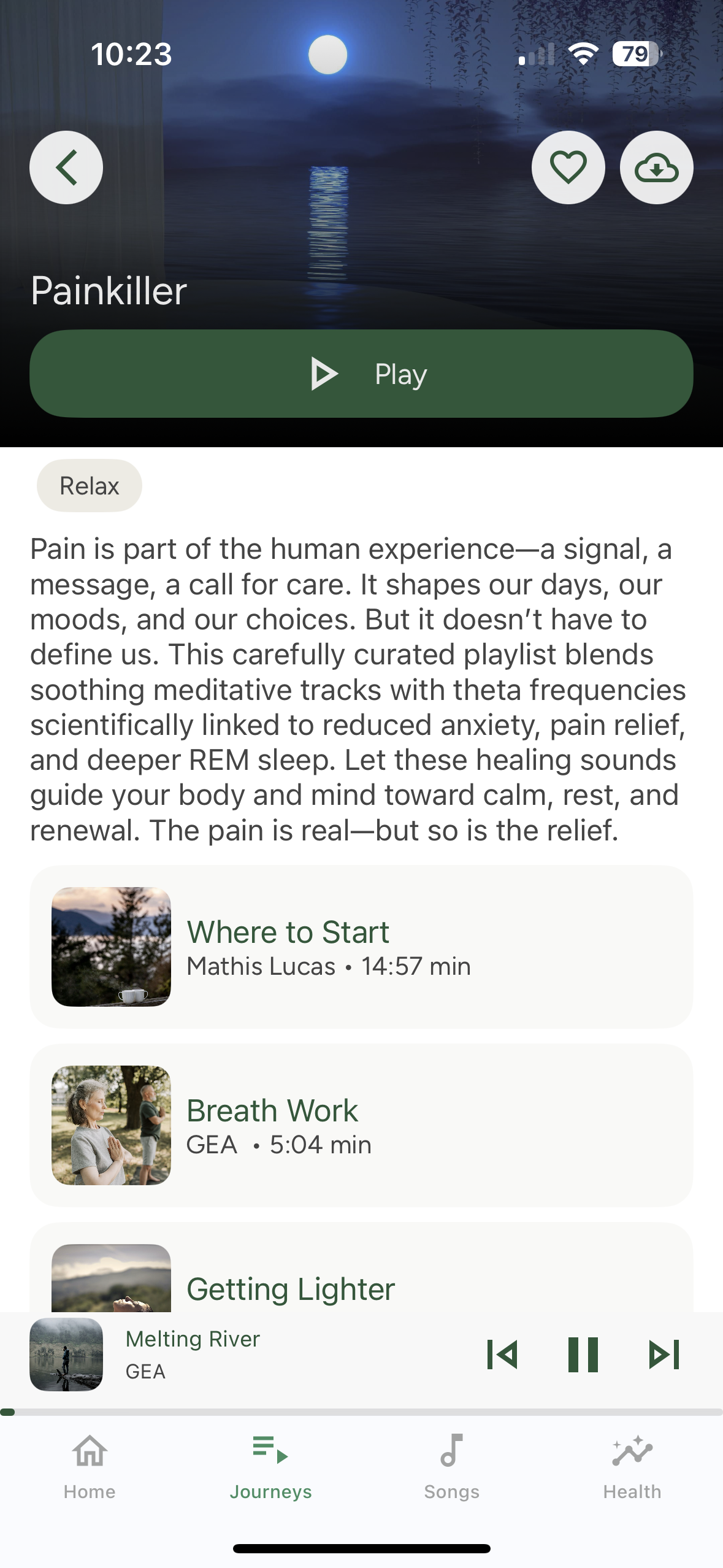Headphones, Not Pills: Binaural Beats Ease Anxiety and Pain

It’s not often that the use of sound tools in the medical field gets this kind of scientific validation. A new peer-reviewed meta analysis paper brings hard numbers to something many listeners already feel intuitively, that binaural beats can significantly calm the body as well as the mind.
The big picture
Researchers from Chongqing Medical University pooled data from 15 randomized controlled trials (RCTs) involving 1,436 surgical patients. In science-speak, that’s a meta-analysis: a method that combines results across multiple studies to generate a more reliable view of what’s really happening. Instead of depending on a single small trial, you get a summary of the real evidence.
And it is worth noting that they started their work by examining 318 papers on this topic, so you can bet that by the time we get down to the 15 in the meta analysis we are talking about only the best examples of controlled trials in the medical field.
The operations studied included spinal nerve plastic surgery, cataract surgery, wisdom tooth surgery, total knee replacement surgery and elective caesarean section.

The results
Across those highly-vetted studies, patients who listened to binaural beat (BB) audio before or during surgery experienced:
- Anxiety reduction: 14 trials (n = 1,047) showed a large effect (SMD = -1.38, 95% CI: -1.89 to -0.87) versus silence. Even compared with ordinary music or “non-BB” audio, BB listening cut anxiety significantly (SMD = -1.01).
- Pain relief: 5 trials (n = 433) found postoperative pain scores dropped (SMD = -0.61 vs. silence; -0.52 vs. non-BB audio).
- Heart relaxation: average decreases of -5.6 mmHg systolic blood pressure (BP) and -3.4 beats per minute heart rate (HR), with no adverse effects reported in any study.
That may sound modest, but it’s meaningful. For context:
* Slow breathing exercises typically reduce systolic BP by around 7 mmHg and HR by 2–3 bpm - click for reference
* First-line antihypertensive drugs such as ACE inhibitors typically lower systolic BP by 8–15 mmHg - click for reference
So binaural beats are operating in the same order of magnitude as other accepted lifestyle interventions, an impressive finding for something that’s entirely non-pharmacological and requires nothing more than headphones.
Why this matters
Perioperative anxiety affects up to 80 % of patients and directly drives heart-rate and blood-pressure spikes, higher anesthetic use, and more postoperative pain. Drugs like benzodiazepines can help, but carry sedation and dependence risks.
The new analysis shows binaural beats can achieve measurable physiological and psychological relief - safely, inexpensively, and without side effects.

How it works
Binaural beats are created when slightly different frequencies are played into each ear (say 400 Hz left, 410 Hz right). The brain perceives a rhythmic “beat” at the difference (10 Hz in this case), nudging neural oscillations into that frequency range. If you would like to know more about binaural beats then click here for the Audicin guide.
Exposure to alpha (8–12 Hz), theta (4–7 Hz) and delta (0.5-4 Hz) bands has been linked to relaxation, reduced cortisol, and improved parasympathetic tone, likely the reason heart rate and blood pressure follow the brain’s lead.

With this in mind Audicin has created special sound journeys that curate these low binaural beat band frequencies for best effect, including 'Painkiller', 'Heal Yourself', 'Relieve Anxety', and 'Relax with Ease'. Try these for free for 30 days by following this link - click to try Audicin!
The takeaway
The message from this meta-analysis is clear: binaural beat audio meaningfully reduces anxiety and pain while gently stabilizing cardiovascular responses.
Compared with both silence and standard music, its advantages are consistent across surgeries, anesthesia types, and listening durations.
For clinicians, that means a simple, side-effect-free way to enhance patient comfort and possibly trim drug use, directled always by patient-guided responses.
For Audicin listeners, it’s validation that what you feel when you press play — slower breathing, steadier pulse, a tangible calm — now has a growing body of science behind it.
Reference: Xiong J. et al. (2025) “Binaural Beats for Perioperative Anxiety and Pain: A Systematic Review and Meta-Analysis,” Complementary Therapies in Medicine, https://doi.org/10.1016/j.ctim.2025.103299.
